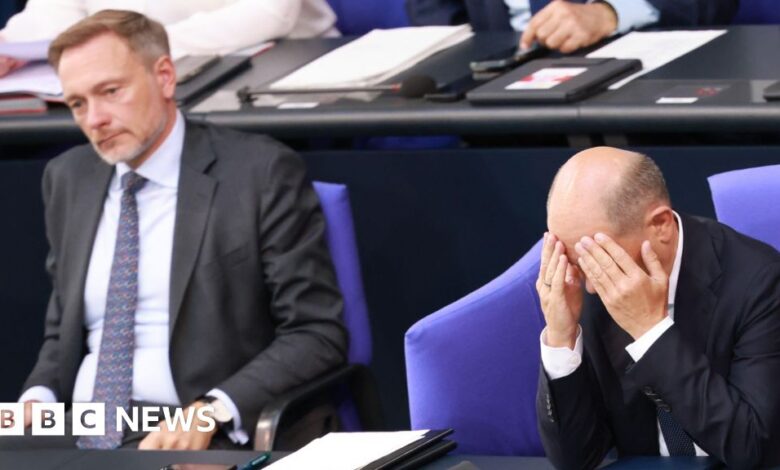The government is on the brink of collapse after a key minister was fired

Germany’s ruling coalition is in crisis after Prime Minister Olaf Scholz fired a key minister and said he would call for a vote of confidence in his government early next year.
Scholz said he has no confidence in Finance Minister Christian Lindner, who leads a rival party that was part of a coalition with Scholz’s Social Democrats and Greens.
The move means Scholz’s government no longer has a majority in parliament. The vote of confidence could lead to early elections in March.
The so-called “traffic light” coalition headed by the chancellor has ruled Germany since 2021.
But internal tensions had been simmering for weeks before exploding on Wednesday night.
Scholz sharply criticized his former finance minister, saying he had “betrayed my trust” and accusing him of putting the interests of his party’s base above the interests of the country.
He added that Germany needs to show that it can be trusted by other countries, especially after the election of Donald Trump.
The crisis within the union has plunged Europe’s largest economy into political turmoil, hours after Trump’s election sparked deep uncertainty about the future of the economy and security. this continent.
When the coalition between the Prime Minister’s centre-left Social Democrats, the environmentalist Green Party and the economically liberal FDP was formed in 2021, each party had big spending plans for own core interest group.
But then Russia launched a full-scale invasion of Ukraine, energy prices skyrocketed and Germany suddenly faced a huge and controversial increase in defense spending – as well as the cost of taking it on. 5 million Ukrainian refugees.
Currently, Germany is facing a second year of no economic growth. The prospect of a Trump presidency simply adds to the sense of urgency that Germany needs a strong government and policy to kickstart the economy.
For Chancellor Scholz and his Green partners, the answer to the crisis is to relax constitutional rules on public debt to allow for more spending. But that is something the free-market FDP strongly opposes.
Instead, Lindner wants to get the economy going by cutting taxes, paying for it by slashing welfare and social budgets, and rolling back environmental goals.
Green Party Economy Minister Robert Habeck said the party would not leave the government and its ministers would remain in office.
Scholz announced that a vote of confidence will be held in the German Parliament, Bundestag, on 15 January. If lawmakers vote to dismiss the government, the country will hold new elections within weeks, instead of the scheduled date in September.
The CDU is currently well ahead in the polls, often ahead of Scholz’s Social Democrats or the far-right Alternative for Germany.


